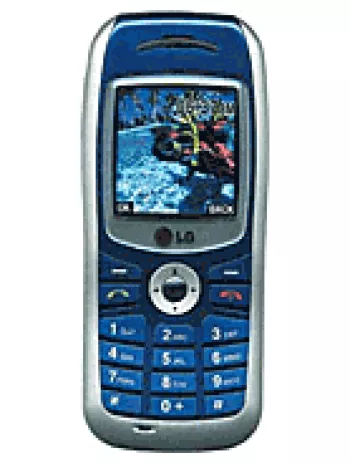
Overview
The LG X3, unfortunately, was a smartphone that never saw the official light of day, as it was ultimately cancelled before launch. Despite this, the specifications and features associated with the device paint a picture of a robust and promising model from LG. This article delves deep into its features to explore what could have been a significant player in the smartphone market during its era of development.
Design and Display
Featuring a 4.7-inch IPS LCD screen, the LG X3 promised a vivid and clear display experience with its resolution of 720 x 1280 pixels, equating to approximately 312 ppi density. This screen size was quite significant at the time, catering to users who wanted both portability and reasonable screen real estate for media consumption and productivity tasks. The inclusion of protective measures for the display indicated durability as a priority.
Performance
In the performance department, the LG X3 was slated to run on an Android 4.0 (Ice Cream Sandwich) operating system, powered by a quad-core 1.0 GHz processor. This setup promised to handle everyday tasks with ease, from multimedia playback to web browsing, catering to a seamless user experience during its time. The 1GB RAM paired with this processor was typical of the era, offering reasonable multitasking capabilities.
Storage
The device came with an internal storage of 16GB, which was fairly standard. However, recognizing the potential need for more space, LG included a microSDHC card slot, allowing users to expand storage for more apps, photos, and media files. This feature ensured that users wouldn't quickly run out of space, making the device adaptable to individual needs.
Camera Capabilities
Photography enthusiasts would have found some appeal with the LG X3. The main camera was an 8 MP shooter equipped with autofocus and LED flash, ensuring quality shots in various lighting conditions. The capability to shoot 1080p videos at 30fps also added a layer of versatility for creative video projects. Additionally, a 1.3 MP front camera allowed for basic selfies and video calls, which sufficed for everyday communications.
Battery Life
At the heart of its operations, the LG X3 featured a removable Li-Ion 2000 mAh battery. While this capacity was on the lower end compared to modern standards, it aligned well with the smartphone's specifications for the period, offering a balance between performance and battery longevity. Users could expect satisfactory usage times for basic tasks and media consumption.
Network and Connectivity
The LG X3 supported GSM/HSPA network technologies, making it versatile for use across multiple regions. With comprehensive 2G and 3G band support, users could enjoy reliable connection speeds and coverage. Furthermore, Wi-Fi capabilities, Bluetooth 4.0, and NFC meant users had a variety of wireless communication options. Notably, the presence of GPS and A-GPS improved location services and navigation accuracy.
Additional Features
The LG X3 included several additional features that added value: a stereo FM radio with RDS for entertainment on the go, and sensors such as an accelerometer, proximity sensor, and compass to enhance utility and user interaction. A 3.5mm audio jack ensured compatibility with a wide range of audio devices, and USB connectivity facilitated easy data transfer and charging.
Conclusion
Although the LG X3 never hit the market, its specifications suggested it would have been a competitive device for its time. With solid performance, reasonable camera capabilities, and essential connectivity features, it was geared towards users looking for a balanced smartphone experience. The absence of the device leaves one to wonder how it would have fared in a fast-evolving technological landscape.
Key Features of LG X3
- IPS LCD display with 4.7-inch screen size
- 720 x 1280 pixel resolution, offering ~312 ppi density
- Protected screen for durability
- Powered by Android 4.0 (Ice Cream Sandwich)
- Quad-core 1.0 GHz processor for efficient performance
- Expandable storage with microSDHC card slot
- 16GB internal storage paired with 1GB RAM
- 8 MP main camera with autofocus and LED flash
- 1080p video recording capability at 30fps
- 1.3 MP front-facing camera for selfies
- Comprehensive connectivity options including Wi-Fi, Bluetooth 4.0, NFC, and GPS
- 3.5mm headphone jack and stereo FM radio with RDS
- Built-in sensors: Accelerometer, proximity, compass
- Removable Li-Ion 2000 mAh battery
- Sleek black color finish
Disadvantages of LG X3
- Not officially announced and was eventually cancelled.
- Limited network technology support: only GSM and HSPA.
- Lacks 4G/LTE support, which is standard in modern phones.
- Older Android version: Android 4.0 (Ice Cream Sandwich), lacking modern features and security updates.
- Low memory capacity: 1GB RAM may not be sufficient for modern apps and multitasking.
- Relatively low internal storage of 16GB, even though expandable.
- Basic front camera with only 1.3 MP resolution.
- No information on body dimensions and weight, hence possible lack of design optimization.
- Removable 2000 mAh battery might not support prolonged use or heavy tasks by today's standards.
- Uses Mini-SIM, whereas current devices use smaller and more efficient SIM sizes like nano-SIM.
View Also
More Phones
All Rights Reserved +14266 Phones © Mobilawy 2025

























